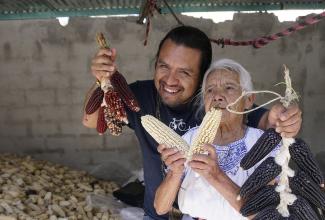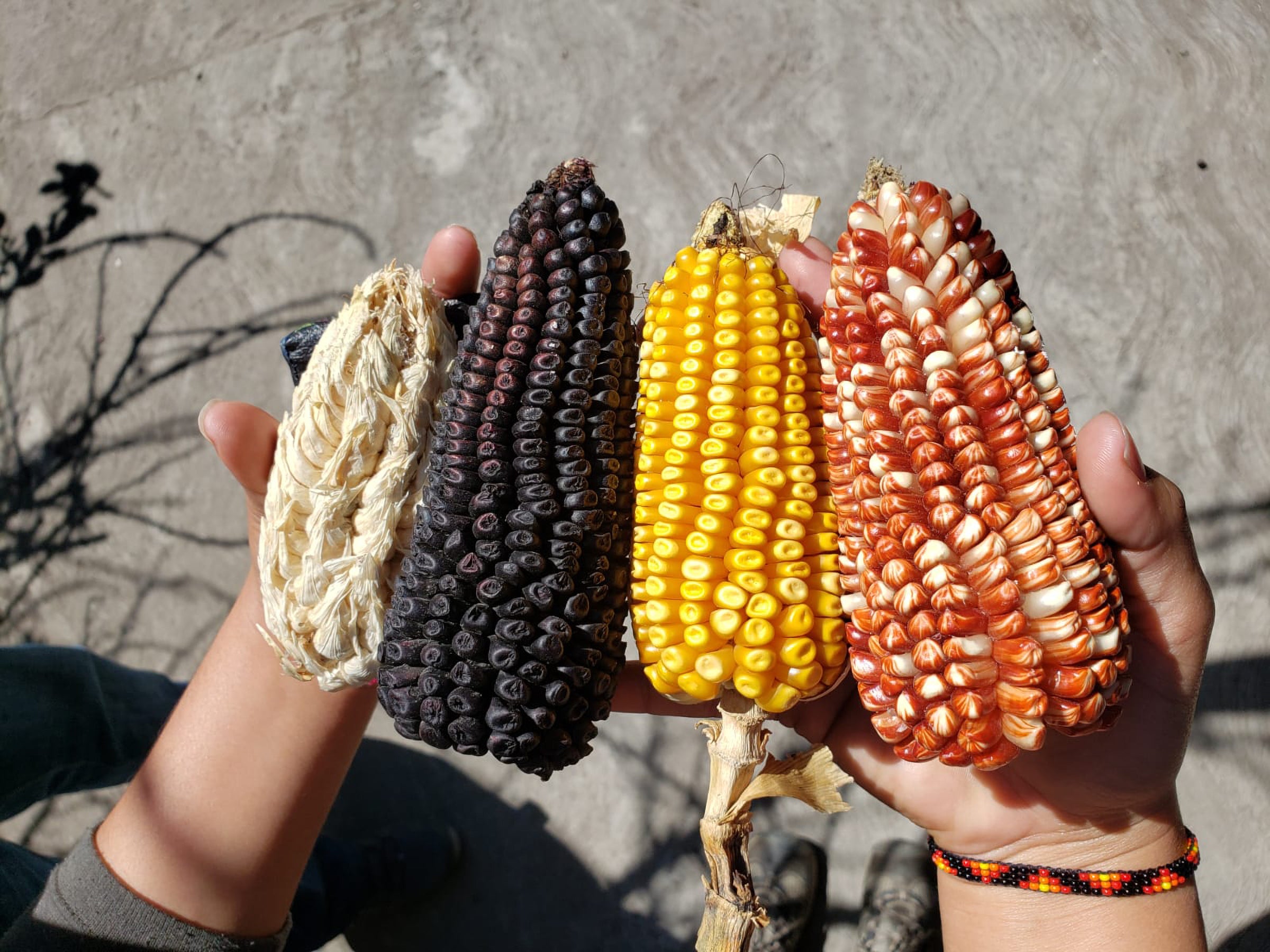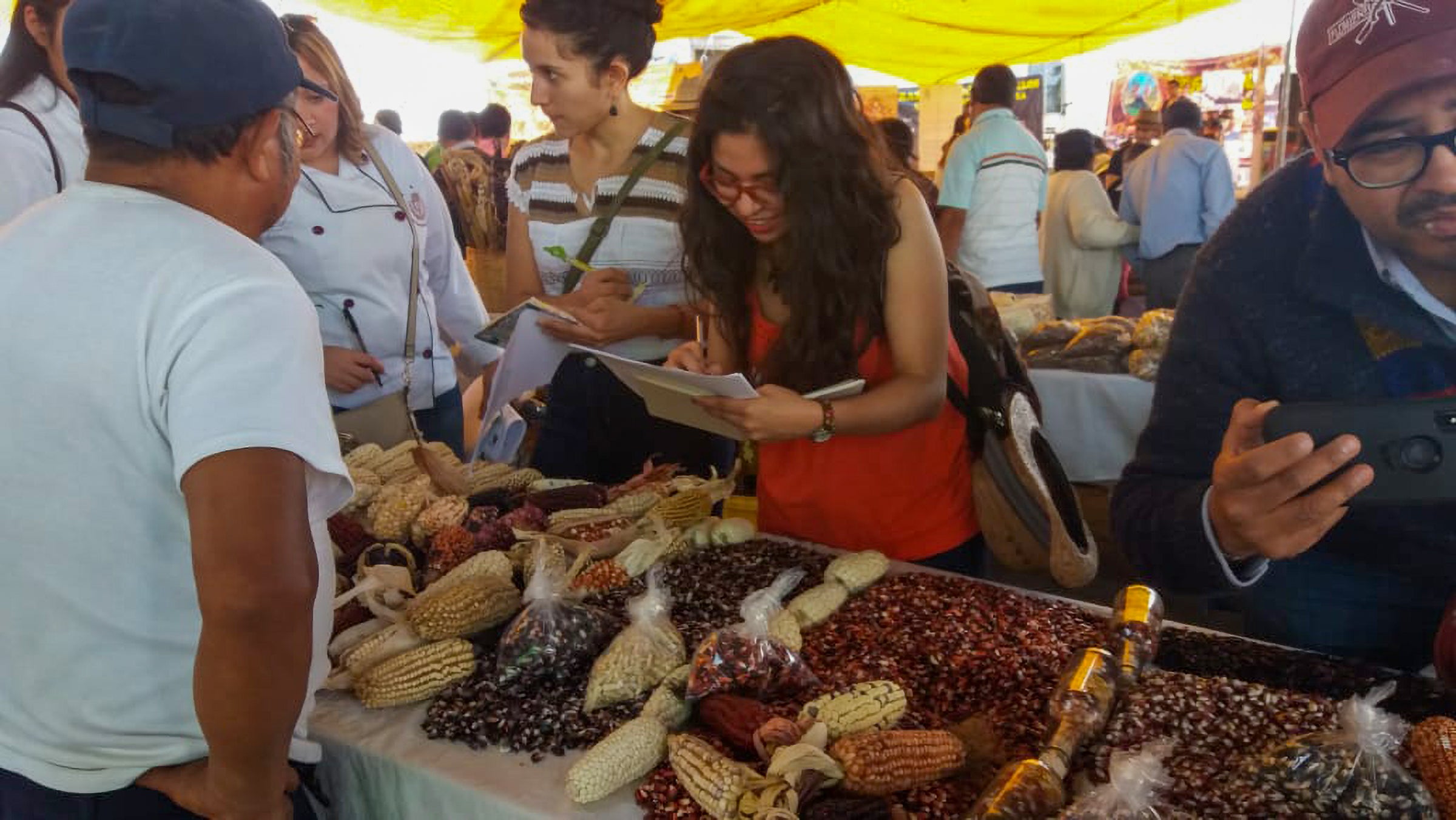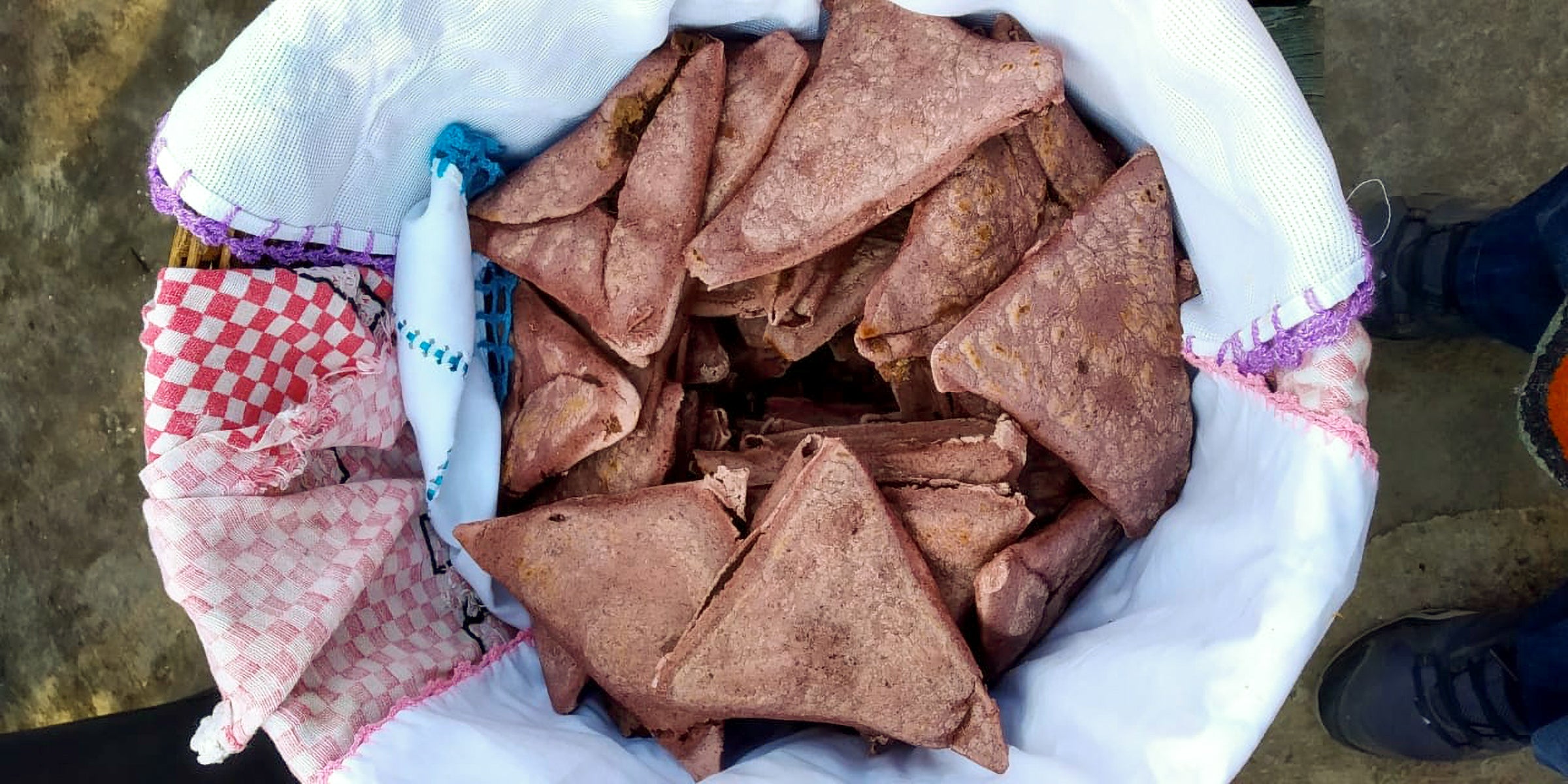
Maize has been a main food staple that has sustained Indigenous cultures for millennia, and for that reason, Indigenous Peoples consider it a sacred plant that contains knowledge and history and should not be commodified. Maize grows in diverse conditions and altitudes, but Indigenous territories are threatened by megaprojects and policies that benefit corporations. Climate change is further affecting food systems, making crops more vulnerable and increasingly leading to Indigenous communities’ abandonment of the countryside. Genetically modified corn and the laws that promote its cultivation are one of the main factors undermining Indigenous knowledge about corn. The dispossession of land and water from communities to supply extractive megaprojects such as mining, oil, and transport projects additionally puts communities at risk. In spite of these problems, various strategies are being carried out at local and international levels. At the local level, Indigenous communities are asserting and maintaining their traditional knowledge and forms of production, applying new, productive strategies to fertilize land and use natural methods of pest control. The daily work in the field is the most arduous; to conserve the corn you have to sow it, care for it, and harvest it. Indigenous and campesino communities carry out this work every day, despite low prices of corn and the loss of harvests due to climate change.

Diversity of corn cultivated (Garlic corn, Black, Yellow, and Blood of Christ corn).
Mexico-based Asamblea de los Pueblos Indígenas por la Soberanía Alimentaria (APISA) is an alliance of Indigenous Peoples and organizations who aim to promote and protect the rights of Indigenous Peoples and strengthen their capacities to achieve food sovereignty through agroecology, selfdetermination, and development rooted in culture and identity. APISA used a Keepers of the Earth Fund grant to host the 4th International Indigenous Corn Conference and 22nd Corn and Native Seeds Fair on March 7–8, 2019, in the community of Vicente Guerrero, Tlaxcala, Mexico. The Conference brought together 120 Indigenous farmers, knowledge holders, food sovereignty activists, tribal leaders, youth, and older individuals from Guatemala, Panama, Mexico, Peru, Ecuador, Bolivia, Chile, Puerto Rico, the United States, and Canada. The participants shared information, seeds, traditional knowledge, and strategies to protect corn and other traditional foods. To strengthen all community work, at the international level organizations and individuals are advocating for international policies to protect maize, Indigenous rights, and lands. There has been much joint work and conferences such as this one held in Tlaxcala, to pay tribute to efforts to protect corn diversity. Cultural Survival recently spoke with Alicia Sarmiento Sánchez (Nahua), a campesina who is part of the board of directors of the APISA.

Corn fair organized by Asamblea de Pueblos Indígenas por la Soberanía Alimentaria in Tlaxcala, Mexico.
Alicia Sarmiento Sánchez: For the past four years we have been working with Indigenous and campesino communities on agrobiodiversity and food sovereignty that is rooted in the planting of native corn. We are creating training modules for community leaders to multiply this knowledge. In these modules we teach soil and water conservation, selection, improvement, and protection of native seeds. We cover fertilization with agro-ecological products and the use and knowledge of medicinal plants. The milpa-based diet, the rescue of pre-Hispanic food, is something we advocate for at APISA with Indigenous and campesino communities in the states of Quintana Roo, Oaxaca, the State of Mexico, Tlaxcala, and Sonora.
We have been defending corn for many years. I am also part of the Vicente Guerrero group in Tlaxcala, and from there we began to protect the corn. Right now, we are focusing on the federal corn law with many organizations. The Federal Law for the Promotion and Protection of Native Corn is a law already approved by both the Senate and federal deputies. This law has three essential objectives: the first is to recognize native corn as national cultural heritage, declaring related activities associated with its cultivation as essential. This is part of the right recognized in Article 4 of the Mexican Constitution; this new law reaffirms parts of the articles of the Constitution. Another objective of this law is to recognize native corn as a national food heritage, declaring its protection and everything related to its production, marketing, and consumption.
The State has to guarantee the human right to sufficient, quality, and nutritious food; this is also established in Article 4 of the Constitution. This law gives us the right to healthy and nutritious food. It also establishes institutional mechanisms to facilitate the fulfillment of its objectives, and seeks to create a National Corn Council to monitor the implementation of this law. I believe it will allow our corn seeds, and especially native seeds, not to be modified. It had to start from the Indigenous and campesino base. We have to protect what is ours, because if we allow this law of plant varieties to be modified, imagine what we would face—we would lose a lot of things. It does not matter if the free trade agreement passes if you can say that there is this law already.
Right now we are monitoring the implementation of the law and how the National Council of Native Corn will be appointed. It is very difficult for all of us to join this council, and we want to make sure that trusted and committed people are part of it. There are also proposals to create state and municipal councils so that they are protecting corn, too. We do not want to leave it in the hands of a national council only—we have to have state, municipal, and if we can, some community councils.

Tlacoyos made of purple corn by women from Maíz de Colores.
One of the things is to be aware of how the law is progressing and to seek this appreciation of corn as a food and cultural heritage, from our human rights to the right to culture and gastronomy. Indigenous Peoples and campesinos need to be aware because our corn really has ancestral value. Our food is like a brother, a father, a mother to us, and we have to continue taking care and protecting it. The government has the obligation to comply with what this law says. It needs to support native seed funds, to support our campesino families and our sisters and brothers, so that our country has that value that it needs to have for many years. It is of great importance that our ancestral knowledge and wisdom of our Peoples is protected.
It is important to note that many colleagues do not agree with the law—not because they do not agree with the content, but because in Mexico we are full of laws that sometimes are only kept on the books and are not implemented. I think that it is the responsibility of each one of us to see and demand that these laws are complied with and that they really benefit our food sovereignty. In the face of this pandemic, we know that if we do not produce our own food, we will not survive this crisis that is still ahead.
Top photo: Celerina Tzoni Solís, member of the women's collective Maíz de Colores, with Sócrates Vásquez García (Ayuujk Jääy), Cultural Survival community media grants coordinator.
